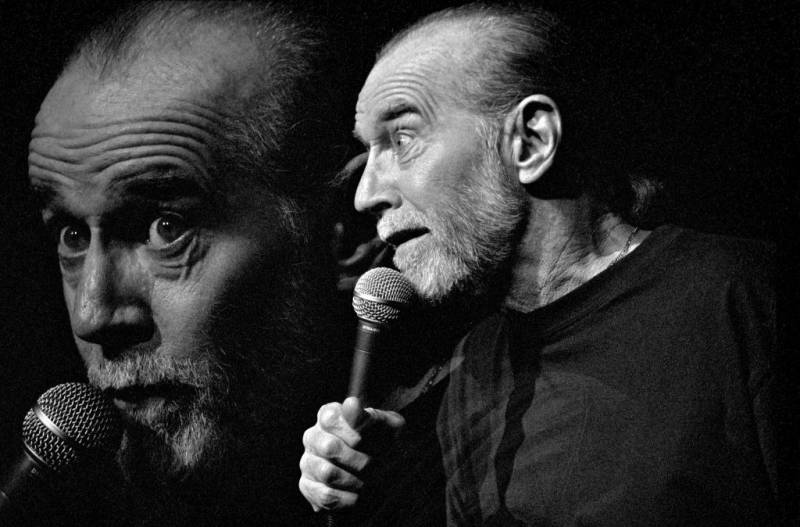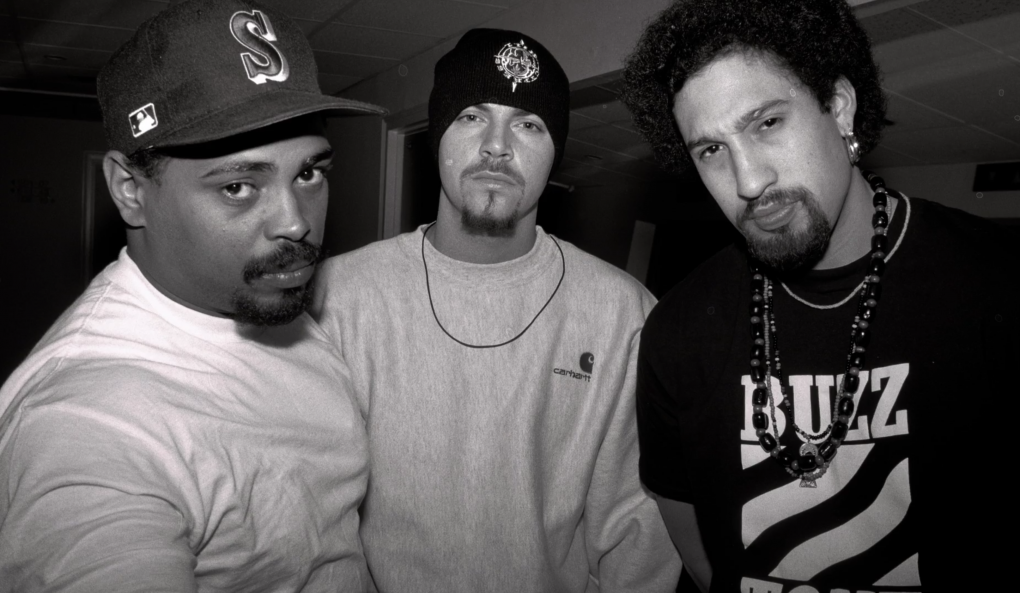Judd Apatow and Michael Bonfiglio’s new HBO documentary about George Carlin feels incredibly relevant. Since Samuel Alito’s draft decision on Roe v. Wade leaked, Carlin’s commentary about abortion (“They’re not pro-life, they’re anti-woman”) has, yet again, gone viral on social media.
‘George Carlin’s American Dream’ is Revelatory, Motivational and—Yes—Very Funny

Watching George Carlin’s American Dream though, what strikes you over and over again is that a Carlin documentary feels timely in 2022 because it would have felt timely at pretty much any point over the last 20 years. It would have been meaningful in 2017 because of tiki torch Nazis. (“When fascism comes to America,” the comedian once said, “it won’t wear jack boots and brown shirts, it’ll have on a smiling face and a T-shirt and designer jeans.”) It would have felt suited to 2020 because of Carlin’s searing commentary on police brutality in the ’80s and ’90s. His 1992 material on the first Gulf War is applicable to every conflict the United States has been involved with this century.
The examples of just how many things Carlin got right and/or predicted over the course of his nearly 50-year career are too numerous to list here. But as W. Kamau Bell notes in the second half of this two-part, three-and-a-half hour documentary: “I mean we all love Lenny Bruce. But no one’s sharing a Lenny Bruce bit to explain what’s happening in the culture right now.”
By contrast, not only has Carlin’s material never lost its relevance, if anything, it only makes more sense as the years tick by. Sure, Carlin understood in his own time that the world was a corrupt and crappy place. But, as George Carlin’s American Dream brilliantly demonstrates, he also somehow knew all of the worst things on the horizon of American culture. And somehow, despite his unflappable cynicism, he successfully made all that bad news, all that dark philosophy, all of that political scrutiny and all of the increasing hopelessness he felt unfathomably funny.
Like Carlin’s own material, Apatow and Bonfiglio do us the favor of not sugar-coating anything about Carlin’s life, be it personal or professional.
We see Carlin’s start as a straight-laced, be-suited, variety show performer in the early ’60s—an oft-forgotten period of his career. We see Carlin in the early ’80s at his lowest point, making tired jokes and dealing with mockery from the younger, hipper comedians he paved the way for. (At one point, Cheech Marin called Carlin “obsolete.”) We hear about the damage wrought by his cocaine addiction from the person it damaged the most—his daughter, Kelly. (Tape recordings of Carlin yelling at himself in a coked-out stupor are genuinely disturbing.) And a spotlight is held firmly over the darker stand-up material that emerged at the end of Carlin’s career. Material in which he claimed, among other things, to enjoy watching people die in natural disasters.
The harsh details of his biography are broken up by Carlin’s own best stand-up clips (including, of course, the legendary “7 Dirty Words” routine that shot him to superstardom in the 1970s.) Those incredibly clever, mostly hilarious bits are enhanced with insightful commentary from fellow comedians, including Chris Rock, Jerry Seinfeld, Bette Midler, Bill Burr and Patton Oswalt. What’s more, close-ups of his hand-written notes-to-self provide insight into Carlin’s thought process and working style. These glimpses feel revelatory. (One says simply: “ABORTION, GUNS, GOD and GAYS should be: JOBS, EDUCATION and HEALTHCARE.”) His love notes to Brenda Carlin, his wife of 36 years, also appear here, surprisingly intimate and sometimes shockingly gooey.
At the end of it all, one is left with the impression that Carlin’s famous caustic persona was the result of a perfect storm. High IQ plus unsatisfied idealism, plus deep sensitivity, plus rebellious spirit all added up to the George Carlin many of his peers and successors consider one of the greatest comedians of all time. And there is ample evidence in the documentary to convincingly back up that claim.
In one scene, Jon Stewart sums up the reason for Carlin’s longevity best. “I still refer to him all the time,” Stewart says. “Which for a comic… I mean, comedy is so ephemeral in so many ways. It takes him out of the class of pop star and puts him in the class of Bach and Beethoven and classicists—people that created something that was timeless because it wasn’t based on a moment, it was based on a deeper truth.”
George Carlin’s American Dream will expose you to myriad truths—about life, about comedy, about power, about pain. Some of them hurt, some of them entertain, but all, presented through Carlin’s eyes, feel inspiring, motivating and, frankly, like a kick in the ass. Even 14 years after his death, Carlin’s words still have the power to give us a jolt. It’s up to us now to figure out what to do with them.

‘George Carlin’s American Dream’ premieres on HBO Max on Friday, May 20 at 8pm. Details here.


